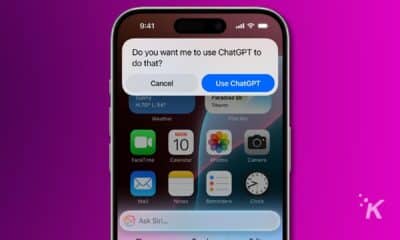Apple
Apple removes Advanced Data Protection in the UK
This is in response to an allegedly secret order from the British government requiring a backdoor to circumvent Apple’s security and access encrypted user data.

Just a heads up, if you buy something through our links, we may get a small share of the sale. It’s one of the ways we keep the lights on here. Click here for more.
In response to the UK government’s demand to create a backdoor for accessing iCloud storage and backups, Apple is taking a drastic measure by dropping an important encryption feature for the users in the country, reports The Washington Post.
Advanced Data Protection, or ADP, provides end-to-end encryption for your files, including iCloud data. It even prevents Apple from accessing your information.
On Friday, the iPhone maker told the journalists that it wouldn’t offer the feature anymore to new users in the United Kingdom.
On top of that, Apple is preparing to discontinue ADP even for the existing users in the region.
It stated that this security feature will eventually be disabled, allowing UK users to continue using their iCloud accounts.
Let’s roll back a bit…
Last month, The Washington Post reported that the British government asked Apple to give it a key to the E2E encryption the company offers for its iCloud backups for mobile devices.
Such a key would unlock any iCloud backup in the world.
In December 2022, Apple introduced its highly secure backup feature known as ADP.
This option encrypts various data types, beginning with device backups encompassing photos, voice memos, reminders, notes, and beyond. The encryption key is kept on the user’s trusted devices.
Apple already had a default backup feature that allowed for the creation of localized and encrypted backups for devices.
The feature utilizes end-to-end (E2E) encryption to safeguard sensitive information. The list includes passwords, Safari browsing history, health data, call logs, and iMessage conversations.
However, it never fully encrypted the iCloud email, contacts, and calendars.
Apple’s support note clarifies the issue in depth, stating the problem stems from the requisite to integrate with the global email system, which lacks a built-in system capable of such encryption.
While Apple didn’t offer an apparent reason for pulling its ADP system in the UK, in a statement, the iPhone company implied that the UK government reportedly issued a secret order demanding a key to access its users’ encrypted data completely.
This key will essentially open a backdoor to the E2E encryption. Instead of complying with the order, it triggered Apple’s drastic decision to pull the plug on its security tech in the UK.
Despite the fact that Apple is calling off ADP in the UK, the company mentioned that the country will still get E2E encryption for over 14 iCloud data classes, including passwords, payment info, Safari activity, and more.
Additionally, iMessage and FaceTime will also get end-to-end encryption.
What does the loss of ADP mean for the UK?

No ADP means no more end-to-end encryption for the iCloud drives or files saved via Photos, Notes, and Voice Notes, among other apps and features for UK users.
The more troubling concern is that other governments, including the US, may follow in the footsteps of the UK government.
So far, the UK government has neither confirmed nor denied the secret order.
Meanwhile, several human rights and privacy groups have criticized the UK government’s directive, dubbing it as alarming.
Others, like Epic Games CEO and professional Apple critic Tim Sweeney, have accused Apple of risking all UK users’ security by removing ADP.
What are your thoughts on UK losing out on ADP? Do you think Apple should have complied with the alleged order? Tell us your thoughts below in the comments, or reach out to us via our Twitter or Facebook.































